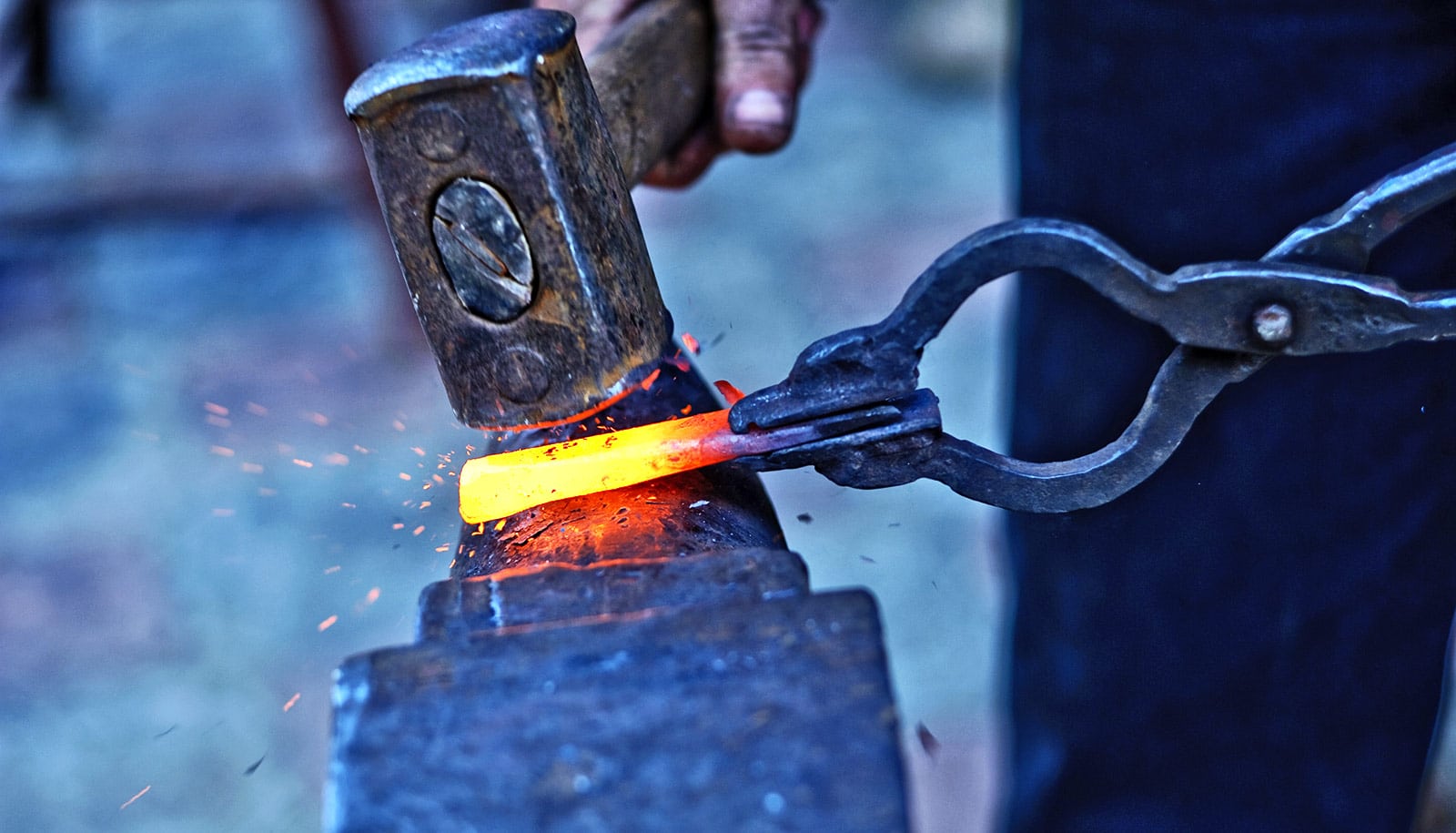A new way to produce a polymer material called polybenzoxazole, a product in bulletproof vests and other high-performance fabrics, could help body armor resist degradation, researchers report.
Degradation is a problem that has plagued materials that contain PBO, known commercially as Zylon, in the past.
“We show that using a nanoparticle catalyst, we can produce PBO in more environmentally friendly conditions and without using a chemical that’s known to cause these materials to degrade unexpectedly,” says coauthor Shouheng Sun, a professor of chemistry at Brown University. “We think this could be a path toward making more robust PBO materials.”
Degradation has led to the recall of PBO-based body armor in the past.
The traditional way to make PBO (its full name is polybenzoxazole) involves the use of polyphosphoric acid (PPA) as both a catalyst for necessary chemical reactions and as a solvent. PPA is a strong, highly corrosive acid and scientists have pinpointed it as the source of PBO degradation. Molecules of the acid lodge in the polymer chain, leaving the fibers susceptible to degradation when they’re exposed to light and moisture over time. That degradation has led to the recall of PBO-based body armor in the past.
Sun’s lab has been working extensively with composite nanoparticle catalysts capable of performing the new reactions required to make PBO, and they do so without using PPA. Catalyzing the reactions with nanoparticles would also require less energy and researchers can perform the process using renewable formic acid as a hydrogen source. All of that makes the production process greener.
Up to now, however, researchers have largely used composite nanoparticle catalysts to make only small organic molecules. Scientists did not know whether a composite catalyst, which in this case the researchers made from particles of gold and palladium alloys, could be useful in catalyzing the controlled growth of polymer chains.
“The key question we were trying to answer is if we can control the reactions so that we get a good control on the degree of polymerization,” Sun says. “We ultimately showed that we could do that by tuning the composition and size of the alloy nanoparticles in our catalyst.”
Tests showed that the PBO polymers researchers made were more resistant to degradation than commercially available Zylon.
The researchers showed that an alloy composition of close to 40% gold and 60% palladium was optimal for controlling the rate of reactions needed to make PBO. Particles around 8-nanometers in size produced a reaction speed that maximized the molecular weight of the PBO polymers.
To find out if the PBO would indeed resist degradation, the team worked with engineers to perform mechanical testing. Those tests showed that the PBO polymers researchers made with the nanoparticle catalyst were more resistant to degradation than commercially available Zylon—even after boiling in water and acid for days.
The researchers say that future work will focus on generating PBO polymers with higher molecular weights. The polymers they generated for this study were significantly lighter than those of the commercial-grade product, which limits their initial mechanical strength. Still, the researchers say, the work is a strong proof-of-concept for the idea that composite nanoparticles can produce degradation-resistant PBO.
The research appears in the journal Matter.
Support for the early stage of the work came from the US Army Research Laboratory and the US Army Research Office. Additional support came from Brown’s Office of the Vice President for Research and the Institute of Molecular and Nanoscale Innovation.
Source: Brown University



